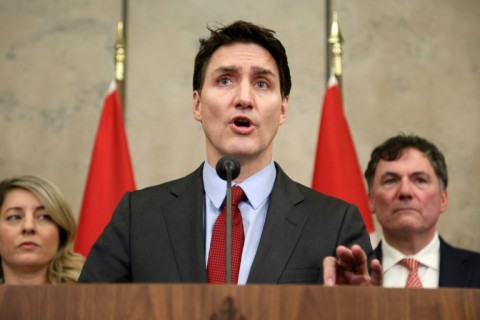






On February 4, 2025, President Donald Trump announced agreements with Mexican President Claudia Sheinbaum and Canadian Prime Minister Justin Trudeau, postponing the previously announced 25% tariffs on imports from these countries. This decision came after a tumultuous market reaction to Trump's initial tariff announcement on February 3, which had triggered a significant selloff in U.S. stock markets [f7203ad5]. Following the announcement of the delay, the Mexican peso rebounded over 3% after hitting a three-year low, while the Canadian dollar rose more than 1% [766c9c81].
Asian stock markets, particularly in Hong Kong, surged over 3% as investor confidence returned in response to the tariff pause [766c9c81]. The S&P 500 Index, which had initially dropped nearly 2% on February 3, saw a partial recovery as investors digested the implications of the tariffs and the subsequent delay [06254b90].
Despite the short-term optimism, analysts warn of potential long-term economic challenges due to the ongoing threats of tariffs and trade wars. The volatility in the markets has led to gold prices reaching a record high, indicating a flight to safety among investors [766c9c81]. Furthermore, future U.S.-China talks could add further uncertainty to the economic landscape [766c9c81].
The immediate aftermath of Trump's initial announcement had seen the Mexican peso and Canadian dollar decline, while oil prices increased, reflecting market anxiety over potential economic fallout [06254b90]. In Thailand, stock market analysts predicted that the SET index might drop to 1,250 points or lower due to the U.S. tariff hikes, which had already caused a significant decline in the Thai market [b25e76d3].
Goldman Sachs had projected that the tariffs could increase core prices in the U.S. by 0.7% and reduce GDP by 0.4%, with the average American household potentially facing an increase in taxes by around $830 in 2025 due to these trade barriers [8b9e0baf].
As Trump prepares for further discussions with Canadian and Mexican leaders, the international community remains on high alert. Analysts have expressed concerns that the ongoing trade war could lead to broader economic instability, with the European Union warning that there are 'no winners in trade wars' [06254b90].
Critics of Trump's trade policies, including economist John McGuirk, argue that tariffs promote inefficiency and raise costs for consumers, ultimately stifling American innovation while encouraging foreign ingenuity [108a97ac]. McGuirk emphasizes that tariffs are inflationary, affecting both foreign and domestic goods, and warns that the trade war could have long-term consequences that extend beyond immediate economic impacts [108a97ac].
As the narrative surrounding Trump's trade policies continues to evolve, the delicate balance between national interests and global economic stability remains a pressing concern for economists and policymakers alike [1ad31bcb].